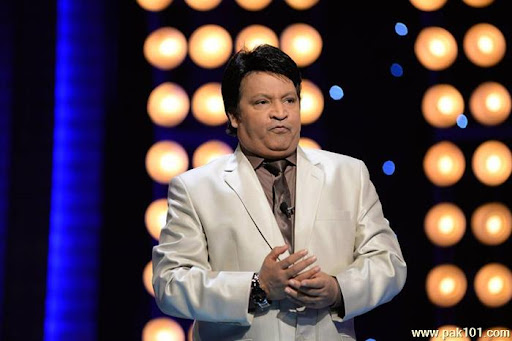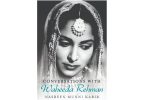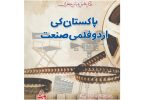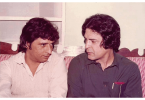October 2nd would forever remain a black day for Pakistan’s entertainment industry, for it took away a veteran comedian and actor Umer Sharif.
The Comedy King was on his way to the United States for treatment of various ailments, but passed away due to a heart attack during a scheduled stop-over in Nuremberg, Germany.
Born in 1955 as Muhammad Umer, he naturally had a knack for making people laugh, be it on a stage, in a room or in family gatherings.
Despite his parents’ insistence that he first complete his education, Umer took to stage. He changed his name twice; the first time he changed his name to Umer Zarif in honour of his mentor Munawwar Zarif. However, after watching Lawrence of Arabia he changed his name to Umer Sharif that stuck with him till his death.
It was during the 1970s when Sharif caught everyone’s attention, not because of his acting skills but his strong command over words.
One of his earliest scripts, Bionic Servant, featured Moin Akhtar in the lead. At that time, Akhtar was on his way to stardom and by agreeing to act in a drama written by Sharif, he helped the veteran comedian come into the limelight. This is something Umer never forgot and acknowledged it whenever and wherever he could.
After successfully winning over the listeners through his stand-up acts and funny audio cassette series, Umer made a strong entry in television in the 1980s. His roles in the drama Fifty Fifty and appearance in the popular episode of One Man Show during the election transmissions is still remembered. It was in that appearance he introduced to the world his brand of comedy and his take on ‘Burgers’ (elite class).
When Pakistan Television and films were unable to compete with the rise of Bollywood in Pakistan, Sharif took the Indian film industry head-on. His stage play Bakra Qiston Pe was so popular during the late 1980s that famous video right holders had to swap it with Amitabh Bachchan’s Shahenshah. While Bollywood sent the Big B starrer to Pakistan, they took Sharif’s stage play in exchange, such as its demand worldwide.
Despite releasing as many as four sequels of Bakra Qiston Pe, Sharif continued acting on TV as well namely in Hanste Baste where he shared the screen with Moin Akhtar once again. In no time, his stage dramas continued to grow in stature and popularity. In the late 1990s, many of his plays including Dulhan Main Le Kar Jaunga, Buddha Ghar Pe Hai, Yes Sir Eid No Sir Eid, and Samad Bond 007 became quite successful, cementing his place as Comedy King.
What made Sharif popular was his ability to deliver unscripted dialogues, to suit the moment as well as the audience.
When he switched to hosting in the same year, he stunned the audience and his fans with his prowess displayed in Eid Shows on Network Television Marketing, variety show Hip Hip Hurray. After that, he hosted many shows around the world.
It was only his brilliance that he could transform his thoughts into poetry and display the magic of words as a host, comedian and actor which no one could compete with. It came naturally to him that he could make his audience laugh at his words, characters and situations.
The dismal state of Pakistani films in the early 1990s prompted him to enter films, as an actor, writer, director and lyricist. Not only did he excel in films, but he also changed the way films were made in Pakistan, which had an impact on Indian cinema as well. Before his entry into films, comedy films and spoof songs were a rarity, and comedians were reduced to side roles. With Mr 420, he delivered the biggest hit where he played not one or two but three roles. Whereas in Mr Charlie, he played a police informant who falls in love while through his other flicks, he gave Bollywood director David Dhawan and actor Govinda a blueprint for success.
Art fraternity from across the border did not only acknowledge his influence on their hit flicks, but Akshay Kumar also publicly referred to him as his teacher when it came to comedy. Popular shows of the day like Kapil Sharma Show and its many inspirations are in fact a contemporary version of Umer Sharif’s stage shows where he used to take the lead, and other characters would come in and go after making the audience laugh.
He used his stage shows to touch many social and political issues in a subtle and light manner through his scripts that were respected as well as under-stood by the audience.
During the latter half of his career, Umer Sharif appeared more on the TV and continued to give quality content to his fans who still remember his shows Parda Na Uthao, The Sharif Show and Umer Sharif Hazir Ho that enthralled his fans. For his invaluable contribution to the entertainment industry, Tamgha I Imtiaz was conferred upon him while during his career he went on to win as many as ten Nigar Awards (four in a year) for his performance as a writer, director and producer. He was also awarded the Tamgha-e-Imtiaz for his valuable contributions to the media and entertainment industry. Sharif’s death has left a vacuum that may not be filled as he was a comedian par excellence.







